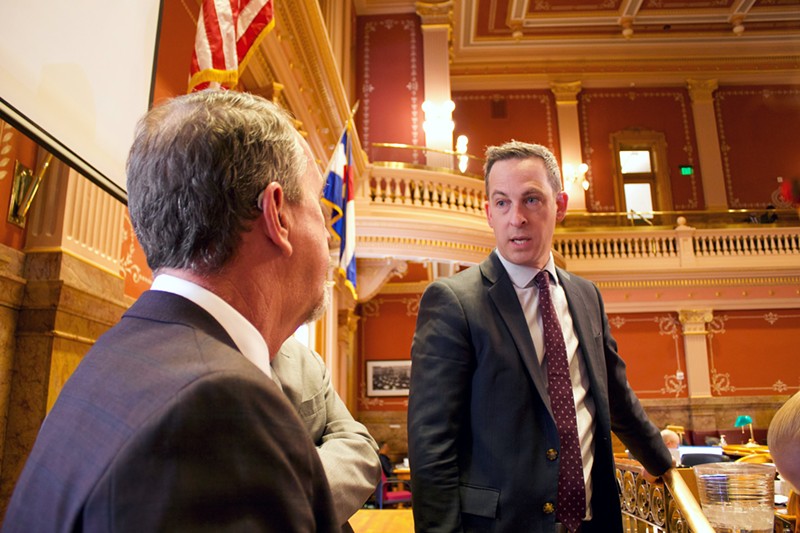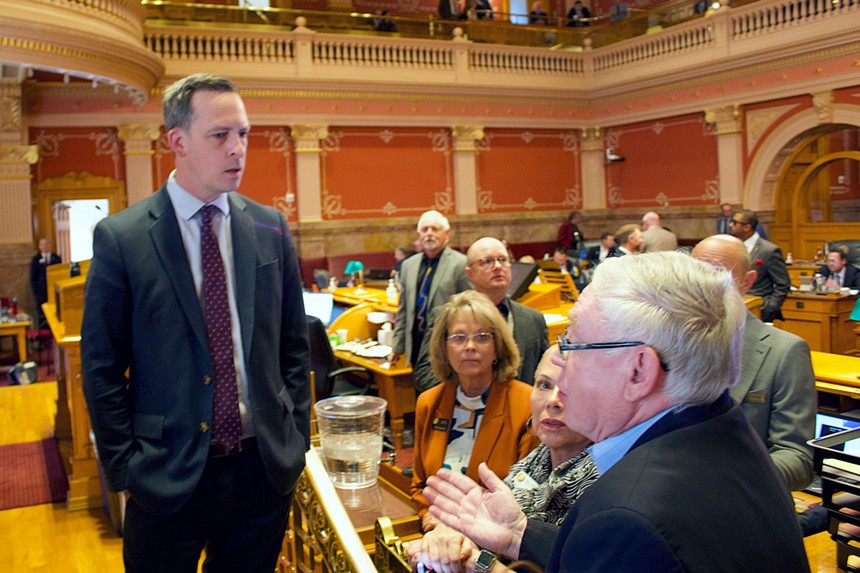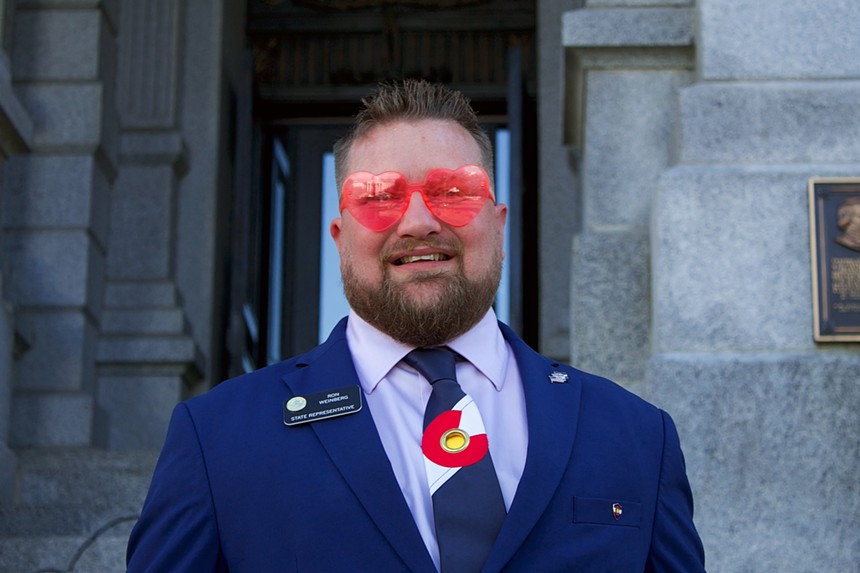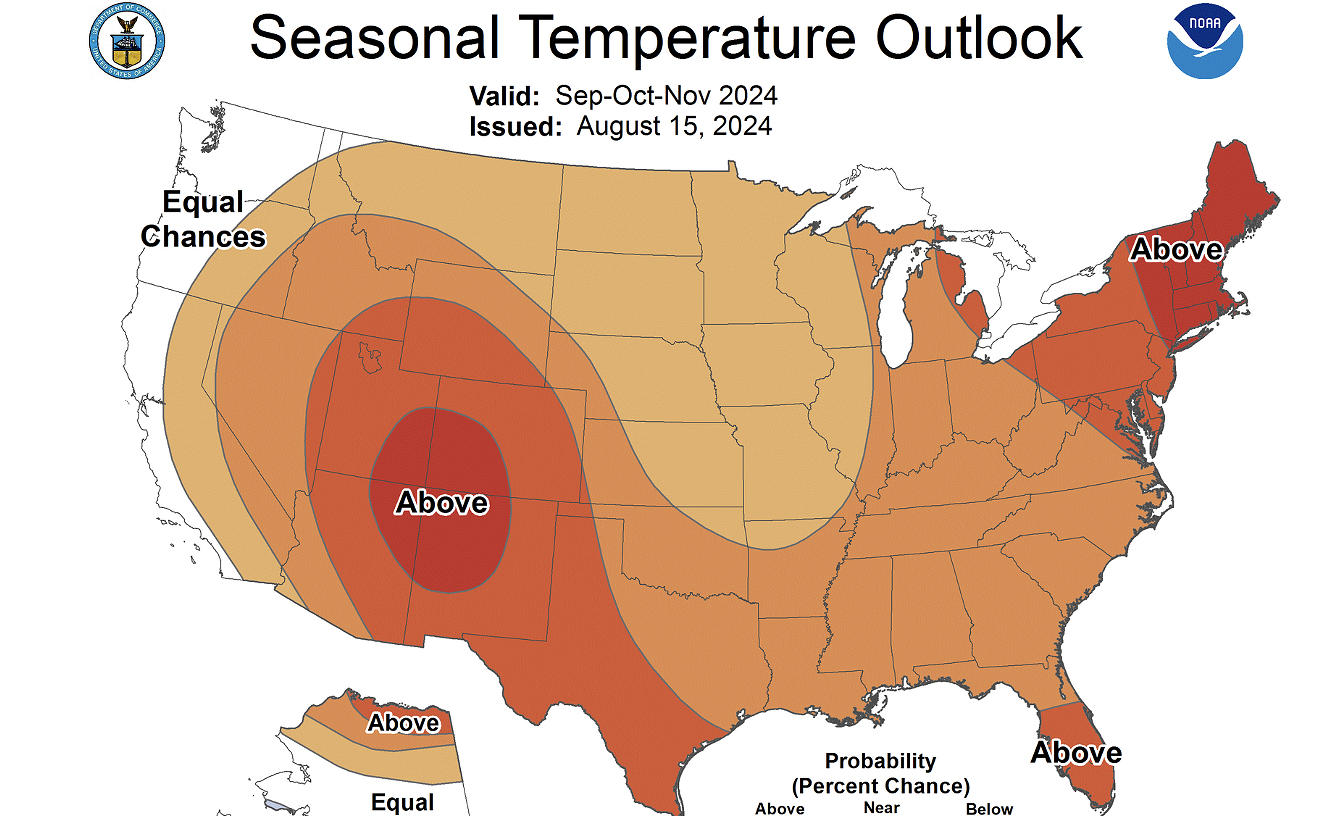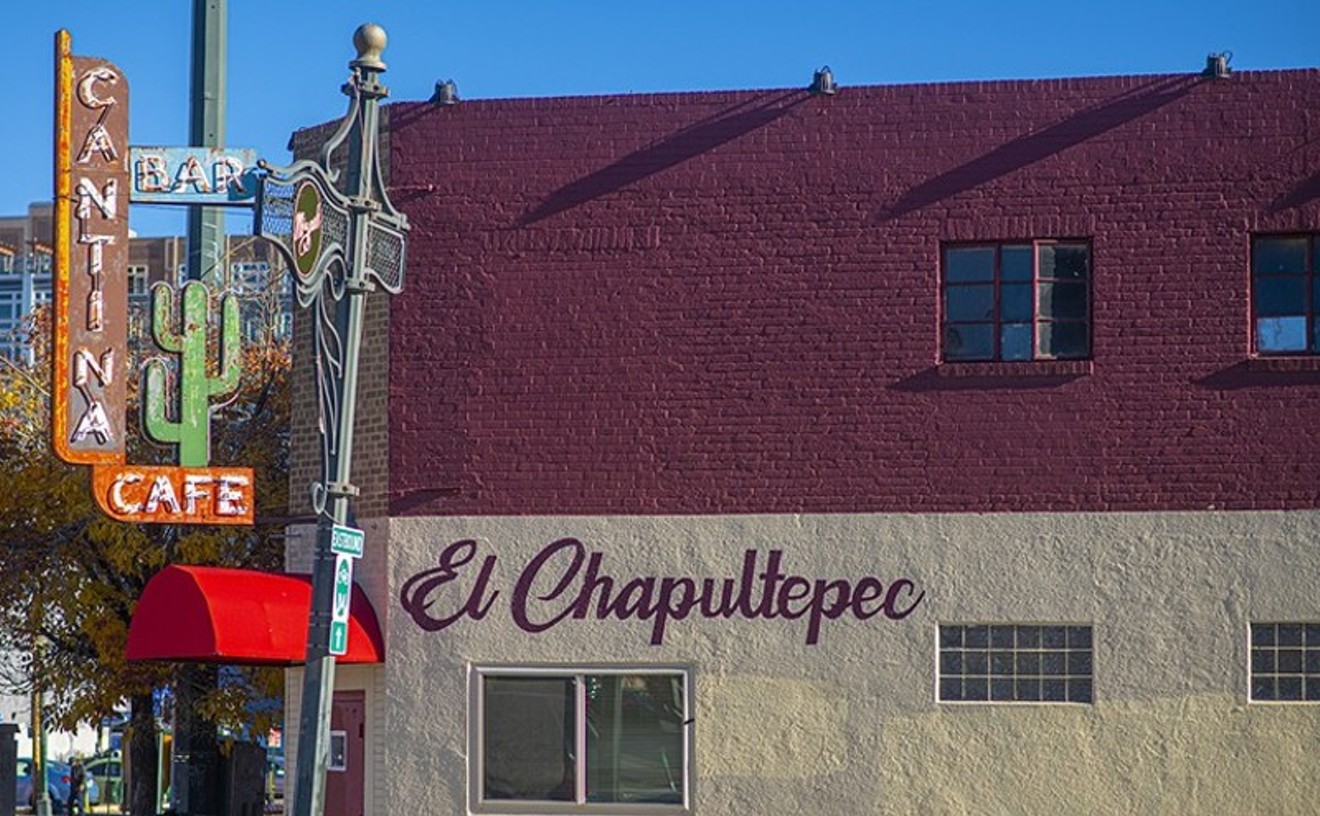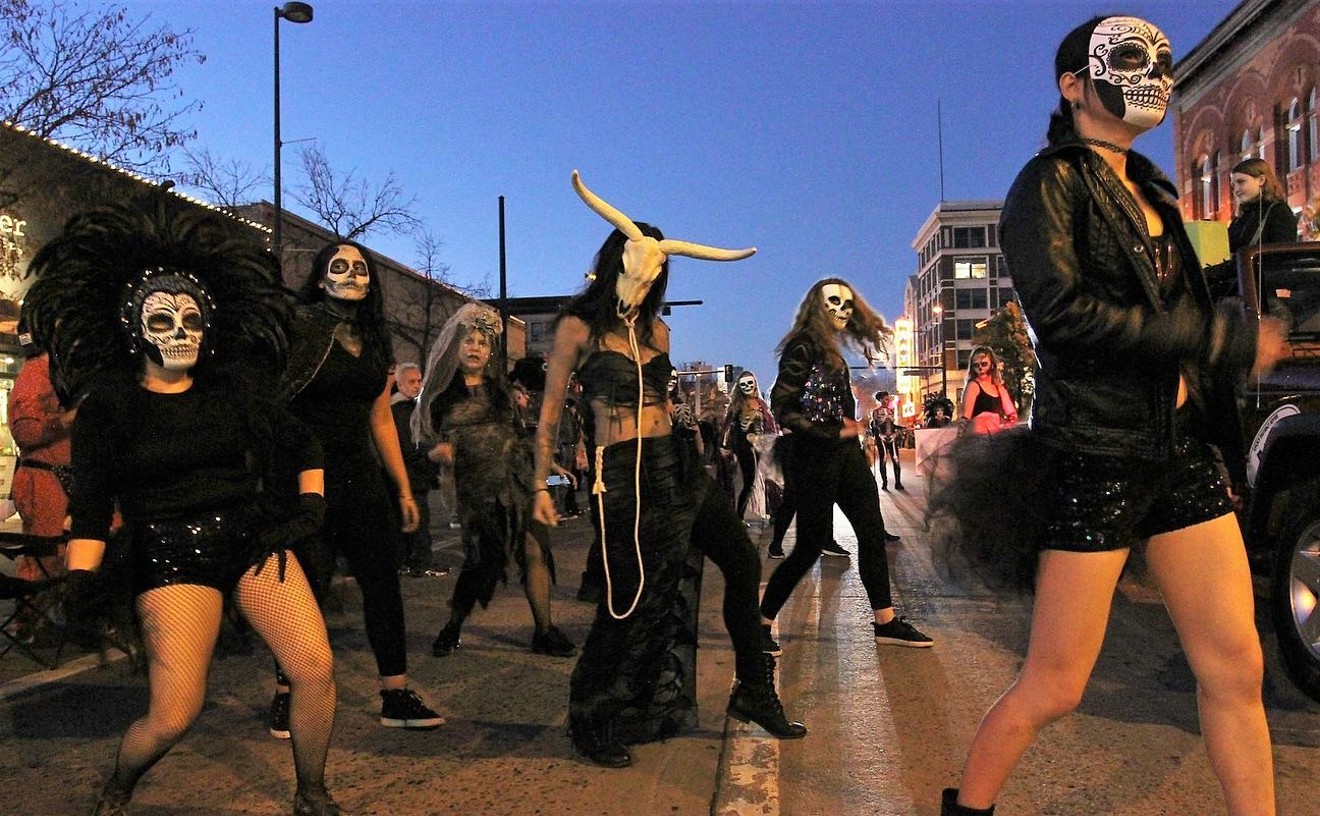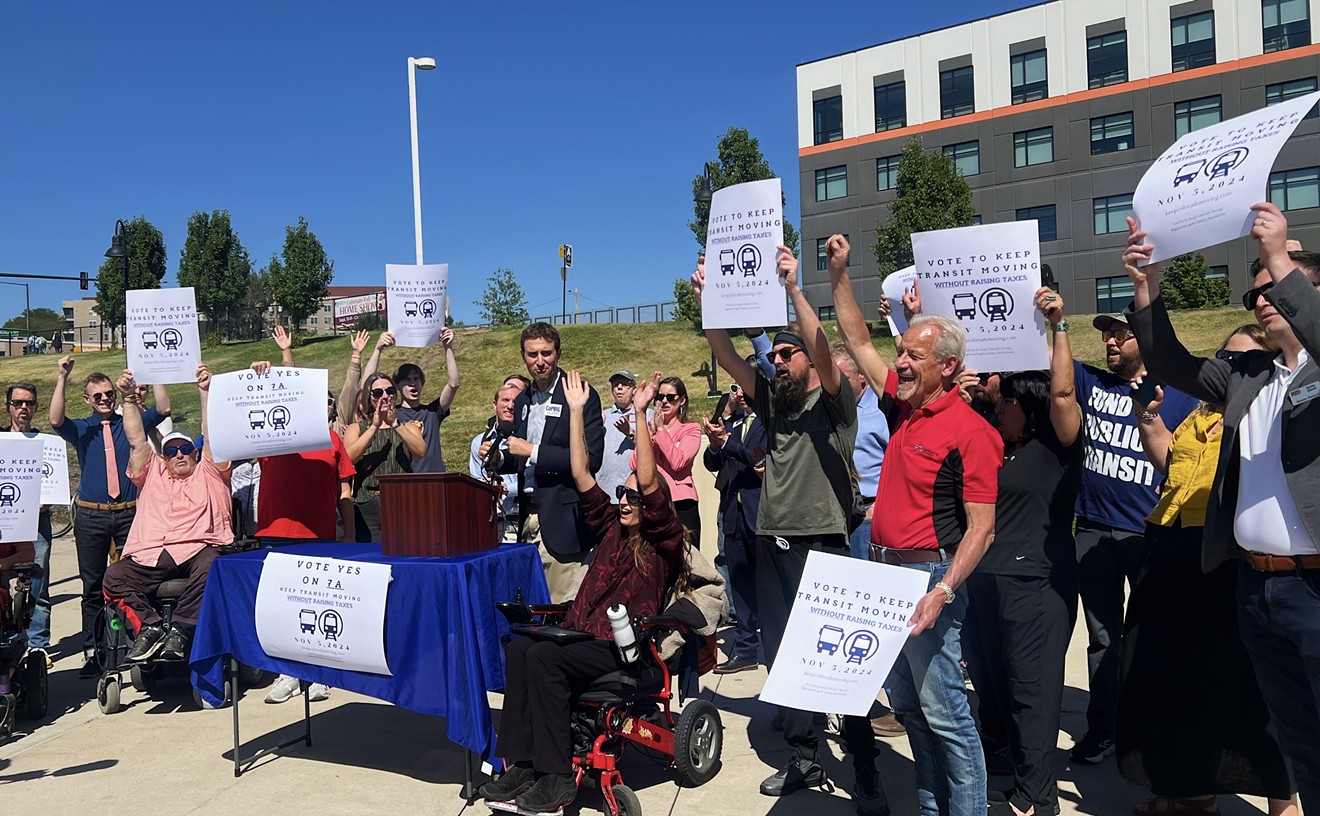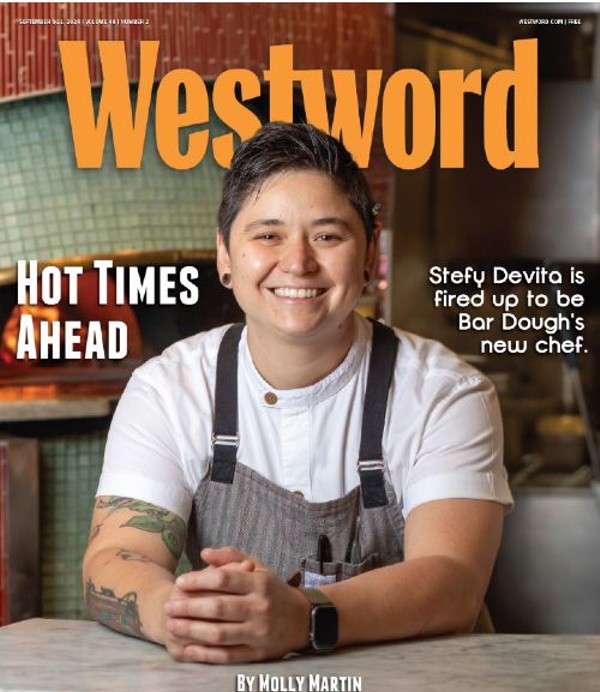It didn't last long.
The first day of the special session was filled with the same spectacle and tension that plagued the political year thus far. Governor Jared Polis's legislative get-together is dedicated to mitigating upcoming property tax increases for next year. The proposed legislation will be debated, amended and advanced over the coming days, with legislators concluding business sometime between Monday and Wednesday.
In the meantime, we've compiled the top moments from the first eight hours within the walls of the Capitol:
Republicans Force Extended Session
The drama broke out quickly in the Senate: Only thirty minutes after roll call, Senate Republicans moved to forcibly extend the session by two additional days. Senate Republicans tossed a wrench into the Democrats' plan to suspend legislative rules, which would let them pass bills in only three days — and go home on Sunday night.
The Republicans argued that because the Democrats didn't provide three days' notice before bringing the motion to suspend the rules, they would need approval from two-thirds of senators instead of just half. That means the 23 Democratic senators would need one Republican to join them in voting "yes."
Without suspending the rules, legislators could not hold the second reading for a bill on the same day as the bill's committee hearing. This would make the special session at least five days long — lasting until Tuesday — instead of the desired three days.
Senate President Steve Fenberg called the move "unfair" and "ridiculous" in a heated exchange with Senator Bob Gardner and Minority Leader Paul Lundeen, saying it is the customary practice to suspend the rules for special sessions. Fenberg said he had previously discussed the plan with Republican leadership without them raising any issues.
"Going back on things that were already discussed openly in the spirit of collaboration, to me, is a slap in the face," Fenberg said. "At 10 a.m. on the floor with press around, you say, 'Hold on'? ... That is performative, and it's not correct. It is not how we do things here."
Gardner said legislators need the extra two days for additional stakeholding. But Fenberg noted how Republicans demanded amendments to legislation in exchange for letting the Democrats suspend the rules.
During the initial fight with Fenberg, Gardner hinted at what might have caused of the debacle in the first place: Republicans are upset that Fenberg and other Democrats described the Republicans' special session property tax proposals as "unserious" in various media interviews.
"I don't think it's the spirit of collaboration to say that Republican proposals aren't real," Gardner said. "They're real!"
Fenberg walked away in frustration but soon returned, and the group agreed to settle the matter after committee meetings. In the evening — after nearly three hours of debate, votes, re-votes and arguments over the rules — the Senate pushed the second reading of one bill to Saturday, extending the session for at least one additional day.
Democratic Bills Win, Republican Bills Lose
Fourteen bills were introduced for the special legislative session. Seven were rejected in committee hearings on Friday. Democrats prime-sponsored all seven of the bills that advanced out of committee and were sent to the full House and Senate for consideration. Of the seven bills that failed, five had only Republican sponsors; one had bipartisan sponsorship and one was sponsored by a lone Democrat: Representative Bob Marshall.
The result was largely expected, as Democrats hold a 69-31 majority in the legislature, so they don't need Republicans to pass legislation.
House Minority Leader Mike Lynch predicted such an outcome during a press conference Friday morning just before the special session started. "We're not optimistic," he said. "We put together the best plan that can be put together in the 36 hours the governor gave us to prepare. ... Everyone in my caucus is going to have a very hard time getting behind what we believe is a disingenuous effort to bring true property tax relief."
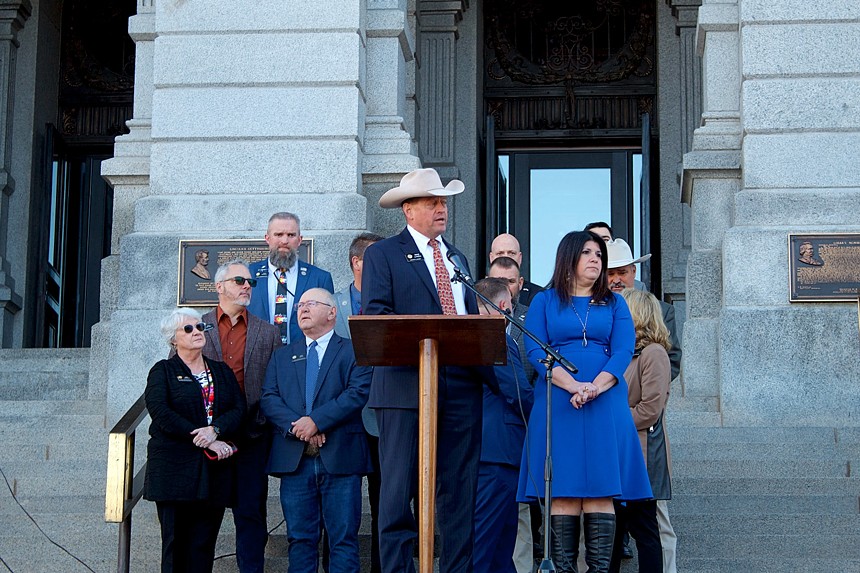
House Minority Leader Mike Lynch leads a low-spirited press conference backed by his caucus.
Hannah Metzger
"I think this is a strategic decision by the Republicans to make the session look as partisan as it can," Representative Chris deGruy Kennedy tells Westword. "There are certainly some policies that have pretty strong differences of opinion between the parties. But there are some other bills coming forward that are, in a normal world, very strongly supported by both sides. But I would be very surprised to see any Republicans vote 'yes' on any of the bills in the special session."
He adds, "They want the narrative coming out of the special session to be that this was a partisan overreach by the Democrats."
Pro-Palestine Protesters Disrupt Capitol
In the middle of a Senate committee's discussion of expanding tax exemptions for seniors, chants of "You can't hide, we charge you with genocide" suddenly exploded through an open window. Right outside of the Capitol, hundreds of people had gathered for a pro-Palestine rally at around 11:30 a.m. Friday to demand that state legislators call for a ceasefire in the Israel-Hamas war. A legislative staff member quickly shut the window, but cheers and chants of "Free, free Palestine" continued to breach the room, though they were not louder than the microphoned presentation of senators.
The disruption lasted only a few minutes before the protesters marched away to join a sit-in at the Colorado Convention Center. They returned to the Capitol shortly before 1 p.m., leading more chants and then dispersing — never attempting to enter the Capitol.NOW: Chants of “you can’t hide, we charge you with genocide” are briefly heard in a Senate committee from a protest outside. Staff close the window (video 1).
— Hannah Metzger (@hnmetzger) November 17, 2023
Even with the window closed, cheers and chants of “free, free Palestine” can still be heard (video 2).@denverwestword pic.twitter.com/pFix0aoDUv
While the senators in the committee meeting did not acknowledge the protest, it resulted in two brief lockdowns of the Capitol building by the Colorado State Patrol.
Foot-in-Mouth Moments
During committee, while asking about how a proposed emergency rental assistance program would hold the recipients accountable for their financial decisions, Representative Don Wilson offered an example of how he thinks renters might spend the money. "It doesn't matter what I spend my money on, I still get renters' assistance," he said. "If I want to go buy cocaine all day, I can still go and get, uh — " the state rep added, stopping when he was interrupted by loud, surprised murmurs that immediately spread across the room.
The bill sponsor, Representative Mandy Lindsay, gave a pointed response: "Coming from a community that desperately needs this kind of assistance, it's not because people are just doing cocaine all day. ... We're not here because everyone's on cocaine."
Across the hall, Senator Larry Liston received a similar but more muted reaction to his comment on a bill to make TABOR refunds equal regardless of income. The bill would result in higher refunds for those who make under $99,000 per year and lower refunds for those who make over $99,000, which Liston argued was unfair.
"There's probably a lot of people in this room who are making over $100,000," he said to a room filled almost entirely with reporters and legislative staff — all of whom certainly do not make six figures.
Several audience members stifled giggles at the senator's comment, while Senator James Coleman openly smiled and shook his head from the podium. Even the senators themselves make less than $44,000 per year, apart from potential non-political income.
Lots and Lots of Gloating
Before Governor Polis granted a special session on November 9, Republican legislators had repeatedly called for one since May — and they didn't let anyone forget it on Friday. Senate Minority Leader Paul Lundeen opened the proceedings with a lengthy speech on the Senate floor, reminding everyone that, "193 days ago, I stood in this very spot, I looked right into that camera, and I called on the governor to do what he has now done."
Lundeen said if the governor had only followed his advice, "We would be spending this week with our families, giving thanks, instead of sitting here." Instead, Lundeen noted how "time and time again, our voices...fell on deaf Democrat ears."
The tale of "I told you so" was repeated again and again — from pre-session press releases to committee hearings to floor debates — and will likely continue through the end of the special session.
If Republicans can't secure their legislation, they're at least determined to claim the moral victory.

